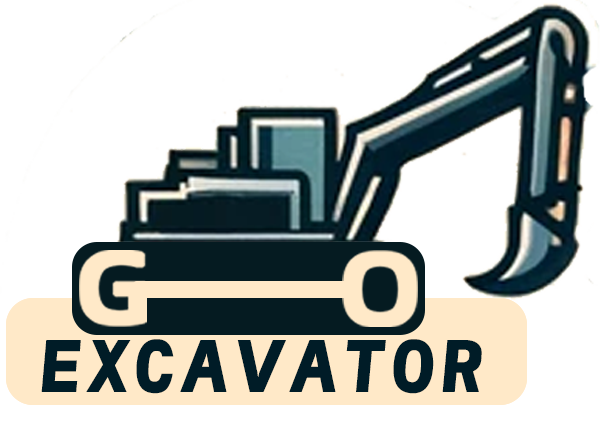
Excavators are indispensable machines in the construction and mining industries, known for their powerful digging capabilities and versatility. To ensure these machines operate efficiently and have a long lifespan, regular maintenance is crucial. This article explores how often excavators need to be maintained, what the maintenance process entails, and the estimated costs involved.
Importance of Regular Excavator Maintenance
Enhancing Performance and Efficiency
Regular maintenance helps keep an excavator in optimal working condition, ensuring it performs efficiently. Properly maintained machines operate smoother, use less fuel, and can handle tasks more effectively, reducing downtime and operational costs.
Extending Equipment Lifespan
Routine maintenance extends the lifespan of an excavator by preventing wear and tear. Addressing minor issues before they escalate into major problems can save significant repair costs and ensure the machine remains productive for years.
Ensuring Safety
Maintaining an excavator regularly ensures that all components function correctly, reducing the risk of accidents and equipment failures. Safety checks and maintenance procedures help create a safer working environment for operators and other personnel on site.
How Often Should Excavators Be Maintained?
Daily Inspections
Before starting each workday, operators should perform a basic inspection of the excavator. This includes checking fluid levels (oil, coolant, hydraulic fluid), inspecting tracks or tires for damage, and ensuring all lights and alarms are functional. Daily inspections help identify potential issues early.
Weekly Maintenance
Weekly maintenance involves more detailed checks and servicing tasks. Operators or maintenance personnel should inspect the machine’s filters, clean or replace them as necessary, and check the condition of belts and hoses. Lubricating moving parts and checking for any loose bolts or fittings are also essential weekly tasks.
Monthly and Quarterly Maintenance
Monthly maintenance typically includes more comprehensive checks and servicing. This may involve changing the engine oil and hydraulic fluids, inspecting and tightening bolts, and checking the battery and electrical systems. Quarterly maintenance is similar but includes additional tasks like inspecting undercarriage components, checking the condition of the hydraulic cylinders, and performing more thorough engine diagnostics.
Annual Maintenance
Annual maintenance is the most extensive and involves a complete overhaul of the excavator. This includes a thorough inspection and servicing of all major components, replacing worn-out parts, and conducting extensive performance tests. Annual maintenance ensures the excavator operates reliably throughout the year.

Estimated Maintenance Costs for Excavators
Daily and Weekly Maintenance Costs
The costs for daily and weekly maintenance are relatively low, primarily involving the operator’s time and minor consumables like lubricants and filters. On average, these tasks may cost between $50 to $100 per week, depending on the machine’s usage and working conditions.
Monthly and Quarterly Maintenance Costs
Monthly and quarterly maintenance involve more significant servicing tasks and parts replacements, leading to higher costs. On average, monthly maintenance can cost between $200 to $500, while quarterly maintenance might range from $500 to $1,000. These costs include labor, parts, and consumables.
Annual Maintenance Costs
Annual maintenance is the most expensive but essential for long-term performance and reliability. Depending on the excavator’s size, age, and condition, annual maintenance can cost between $1,000 and $5,000. This comprehensive service ensures all components are inspected, repaired, or replaced as needed, providing a fresh start for the upcoming year.
Factors Influencing Maintenance Costs
Machine Age and Condition
Older excavators or those subjected to harsh working conditions may require more frequent and extensive maintenance, increasing costs. Regular use and wear and tear can also lead to higher expenses for parts and repairs.
Usage Intensity
Excavators used intensively or for demanding tasks may require more frequent maintenance. Machines operating in extreme conditions, such as mining or heavy construction, may experience more wear and tear, leading to higher maintenance costs.
Brand and Model
The brand and model of the excavator can influence maintenance costs. Some brands have more expensive parts or require specialized servicing, while others may have more readily available and affordable components.
Regular maintenance is crucial for ensuring the optimal performance, safety, and longevity of excavators. By adhering to a consistent maintenance schedule and addressing issues promptly, operators can minimize downtime and reduce long-term costs. While maintenance involves expenses, the benefits of keeping an excavator in top condition far outweigh the costs, ensuring reliable and efficient operation for years to come.
Frequently Asked Questions (FAQs)
1. How often should I perform daily maintenance on my excavator?
Daily maintenance should be performed before starting the machine each workday. This includes basic inspections and checks to ensure the excavator is in good working condition.
2. What are the costs associated with weekly maintenance?
Weekly maintenance costs typically range from $50 to $100, covering minor consumables like lubricants and filters and the operator’s time for inspections and servicing.
3. How much does annual maintenance cost for an excavator?
Annual maintenance costs can range from $1,000 to $5,000, depending on the excavator’s size, age, and condition. This comprehensive service includes extensive inspections, repairs, and parts replacements.
4. What factors can increase maintenance costs for an excavator?
Factors that can increase maintenance costs include the machine’s age and condition, usage intensity, operating environment, and the brand and model of the excavator.
5. Is it necessary to perform daily inspections even if the excavator is not used frequently?
Yes, daily inspections are essential to identify potential issues early and ensure the machine is ready for use. Even if the excavator is not used frequently, regular checks help maintain its condition and prevent problems from developing.
A Comprehensive Guide to Buying a Excavator Second Hand
Purchasing a second-hand excavator can be a cost-effective solution for your construction or landscaping needs. However, buying used machinery comes with its own set of challenges and considerations. This comprehensive guide will walk you through [...]
Comprehensive Guide to Hyundai Mini Excavators: Features and Prices
Mini excavators have become indispensable tools in the construction and landscaping industries. Hyundai Construction Equipment, a global leader in heavy machinery, offers a range of mini excavators known for their reliability, efficiency, and advanced features. [...]
How to Extend the Service Life of Excavator Parts
Excavators are indispensable machines in the construction and mining industries. They perform heavy-duty tasks that demand robust components and meticulous maintenance. Extending the service life of excavator parts not only reduces operational costs but enhances [...]
Kymron Excavators: Innovative, Sustainable Construction Machinery
In the dynamic world of construction and heavy machinery, Kymron has emerged as a game-changer. Specializing in advanced excavator technology, Kymron is redefining industry standards with its commitment to innovation, efficiency, and sustainability. Company Overview [...]
Bulldozer vs. Wheeled Excavator: Which Machine is Better for Moving Soil?
Moving soil is a fundamental task in construction, landscaping, and earthmoving projects. Choosing the right machinery for the job can significantly impact efficiency, cost, and project timelines. Two of the most commonly used machines for [...]
Why Are Small Excavators Favored? A Comprehensive Guide
In the world of construction and landscaping, efficiency and versatility are key. Among the myriad of machinery available, small excavators have risen in popularity. But what makes them so favored? Introduction to Small Excavators Small [...]




